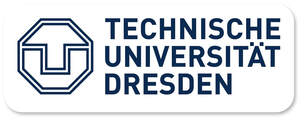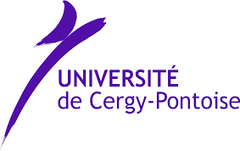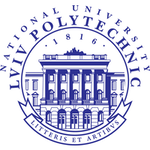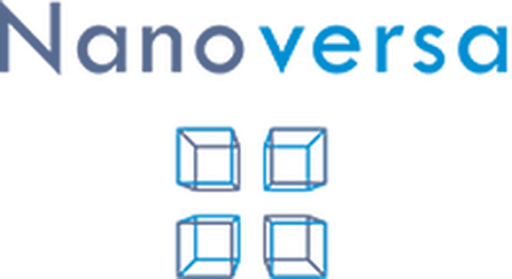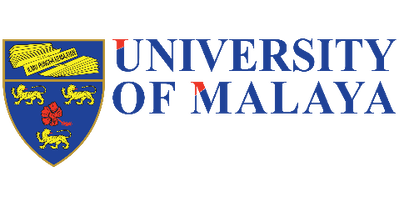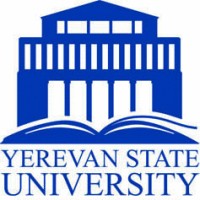The Consortium
|
|
Kaunas University of Technology (KTU) was the project coordinator of the MEGA project. The institute is a leading technological university in Lithuania focusing its activities on enhancing the quality of human life and acceleration of state hood development. The Department of Polymer Chemistry and Technology (DPCT) is one of the most highly ranked at KTU. The main expertise of DPCT is design, synthesis, characterisation and investigation of the properties of organic semiconductors for optoelectronic devices.
|
|
The Skabara group at the University of Glasgow (UoG) is best known for its ability to synthesise novel organic semiconductors. The materials encompass small to large molecules (up to 8,000 Da), well-defined and monodisperse oligomers and polymers prepared by chemical or electrochemical methods. Highlights of their work include organic lasers with several record-breaking lowest thresholds recorded, materials for LiFi, organic solar cells with highly promising efficiencies for molecular species, and field effect transistors with excellent air stability. The University of Glasgow won the Times Higher Education award for Best Scottish University in 2018.
|
|
The Dresden Integrated Center for Applied Physics and Photonic Materials (IAPP) belongs to the Department of Physics of the TU Dresden. The IAPP has an excellent international reputation, founded several industrial spin-off companies, and its members have received numerous awards in the field of organic electronics, including the German Future Prize (endowed 250.000€), awarded by the German President. The IAPP is the core basic research laboratory of Organic Electronics Saxony (www.oes-net.de), Europe’s largest organic electronics cluster and has intro- duced many pioneering technologies, including molecular doping and the pin-structure which is the basis of today’s record efficiency for OLEDs and organic solar cells. As such, the IAPP has a high international visibility and is constantly attracting excellent applications from all over the world. Furthermore, with its start-ups and excellent links to companies around Europe, students often have the possibility to directly pass into industry right after their graduation.
|
|
The laboratory LPPI (Laboratoire de Physicochimie des Polymères et des Interfaces) at the Université de Cergy-Pontoise will be involved in the MEGA project. The group is composed of experienced researchers in polymer chemistry, organic/inorganic chemistry, theoretical chemistry, electrochemistry, and material sciences. They have considerable know-how in synthesis, characterisation by experimental and theoretical methods of electroactive and conductive molecules, smart IPN‑based materials, polymer chemistry, and materials for OLED and photovoltaic application.
|
|
Lviv Polytechnic National University (LPNU) is the oldest technical educational institution in Ukraine and Eastern Europe. The scientific background of the Department of Electronic Devices at Lviv Polytechnic National University covers practical experience in the field of organic electronic devices fabrication (using vacuum deposition and spin coating method) and investigation (measurement of electrical and electro-optical characteristics of devices using Current-Voltage Characterisation, Electrical Impedance Spectroscopy, Electroluminescence Analysis etc).
|
|
Nanoversa is is a start-up company that was established in 2020 to commercialize the nanophotonics related research results obtained at Kaunas University of Technology in the past decade. The company is dedicated - but not limited - to expanding the application horizons of nanophotonics, diffractive optics and nanolasers. Nanoversa is an e-member of Kaunas Science and Technology Park, which is the largest innovation community in Lithuania. Kaunas Science and Technology Park helps technology developers, scientists, and researchers to meet and establish meaningful business partnerships, undertake new projects and develop innovations. |
|
Intelligentsia provides high-quality, knowledge-based consultancy services to support research and innovation in private and public organisations. We have over 20 years’ experience of managing R&D and innovation projects on behalf of universities, public research organisations and private companies. Our experience of EU funding schemes dates back to the European Commission’s Fourth RTD Framework Programme (1994-1998). During the past 10 years, we have worked on project management, dissemination and “soft-skills” training for 40+ FP7 and H2020 projects including: OLED lighting, OLED displays, scintillating materials, semiconductors, magnetic nanoparticles, rare earth based nanosensors and carbon nanotubes. We have especially strong experience of research cooperation with former Soviet countries such as Belarus and Ukraine.
|
|
The company Carat was founded in 1972. Previously it had been Lviv’s R&D Institute of Materials. The company is specialised in the fabrication of innovative materials and the development of new technologies used in micro- and radio-electronics. The company’s areas of development include: optoelectronic devices (e.g. microchip lasers, solar cell packages, AO modulators, EO modulators); acoustic and optoelectronics (e.g. gallium arsenide epitaxial structures, active elements for electro-optical Q-switches, cadmium tungstate single crystals); microelectronics (e.g. silicon single crystals and wafers); and magnetoelectronics (e.g. Hall sensors based on gallium arsenide heterostructures).
|
|
The Graduate Institute of Photonics and Optoelectronics at National Taiwan University undertakes research covering a range of photonics and optoelectronics technologies including: a) Display technologies: LCDs, design and fabrication of OLED displays, poly-Si and amorphous thin film transistors for LCD and OLED display, projector techniques, and optical MEMS for display applications and b) Energy technologies: solid-state lighting, solar cells, wide-band-gap semiconductors and nanostructures for LEDs.
|
|
The Departments of Physics and Chemistry at the University of Malaya work in the field of organic electronics specialising in OLEDs. Their activities include leading cost-effective synthesis of organic semiconducting materials for lighting application, interfacial physics and fundamental mechanism of high-performance OLED, accurate computation of OLED materials, and organic field effect transistors and phototransistors.
LABKICOSMOS is a company specialised in developing organic materials for worldwide customers. The company is oriented towards organic electronic materials used mostly for OLED, OPV technologies and other applications. Their excellent R&D background in the field of chemistry, physics and materials science provides cost effective and high quality products for customers. The company is situated in Lille, France.
|
|
Yerevan State University (YSU) is the oldest and the biggest higher education establishment in Armenia. YSU’s Faculty of Chemistry is specialised in the synthesis and characterisation of organic low molar mass as well as polymeric materials. The group has a deep experience in polymer chemistry, and published over 70 national and international scientific articles. The equipment for characterisation of materials, including the NMR, spectrometers FTIR ATR, UV spectrometer, elemental analysis apparatus, liquid chromatography, luminescence spectrometer, and conductivity measurement apparatus are available at the Faculty.
|


